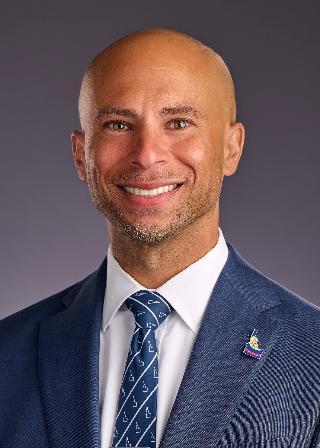Part 1: ESAs
Idaho’s education policy discussions have exploded in recent years to include debates around education savings accounts (ESAs). After conducting a quick search, it seems that in 2022 our Legislature saw one ESA-related bill; this year we saw four. This trend will continue.
ESAs are parent directed, publicly funded accounts that families can use to purchase eligible products and services they deem necessary to augment their children’s education. Similar (though not identical) to Idaho’s Empowering Parents program, ESA funds can generally be used to cover a range of eligible education-related expenses such as tutoring, equipment, supplies and private school tuition.
Part 2: The Idaho Constitution
Idaho’s Constitution, like most other state constitutions, contains what is called the Blaine Amendment. Article IX Section 5 of our constitution reads in part as follows:
Section 5. SECTARIAN APPROPRIATIONS PROHIBITED. Neither the legislature nor any county, city, town, township, school district, or other public corporation, shall ever make any appropriation, or pay from any public fund or moneys whatever, anything […] to help support or sustain any school, academy, seminary, college, university or other literary or scientific institution, controlled by any church, sectarian or religious denomination whatsoever; …
Our Blaine Amendment prohibits the use of Idahoans’ tax monies to fund religious K-12 education. It does NOT prohibit the use of public tax monies to pay for private non-religious K-12 education. Since the year 2020, U.S. Supreme Court decisions have blurred the line between this historically clear distinction.
Part 3: The U.S. Supreme Court
Contrary to false and legally uninformed claims, the Blaine Amendment is not dead. Rather, the Court has created a legal regime, discussed next, whereby states may in effect retire their own Blaine Amendments by adopting an ESA program.
In Carson v. Makin (2022) and Espinoza v. Mont. Dept. of Revenue (2020), the Court examined the Maine and Montana constitutions, respectively. While I’ll spare you the legal analysis, the Court emphasized that a “State need not subsidize private education. But once it decides to do so, it cannot disqualify some private schools solely because they are religious.” Using this logic, these cases – Carson specifically – held that “Maine’s ‘nonsectarian’ requirement for otherwise generally available tuition assistance payments violates the Free Exercise Clause” [my emphasis].
In other words: Blaine Amendments remain constitutional. However (and this is the mother of all howevers) if a state decides to start using public monies to fund any private school tuition – thus making tuition assistance payments “generally available” – it may not exclude religious schools.
So what does this mean for Idaho? It means our debates about ESAs are not just about whether we want to use public monies to pay for private K-12 school tuition. The debates are also over whether we want to retire our Blaine Amendment and change our Constitution.
So What
This year, some of my Republican colleagues took a novel (but failed) approach to addressing our predicament. House Bill 339 would have put a non-binding advisory question on the November 2024 general election ballot asking Idaho voters if they believed the Legislature should “direct or appropriate public tax dollars to private K-12 schools, including private religious and for-profit schools.” I believe the intent was to ask Idahoans whether they’re comfortable opening this door and retiring the Blaine Amendment. Even bill opponents supported the idea of “asking the people” but opposed the specific language proposed in the bill.
Because changing our constitution is so consequential and there is time to put an advisory question on the November 2024 ballot, I think an updated version of House Bill 339 with new language, and a subsequent advisory vote for Idahoans, is something the Legislature should again consider.

